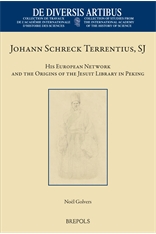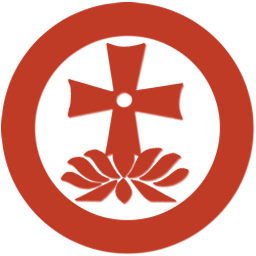
Turnhout (Belgium): Brepols, 2021.
648 p., 8 b/w ill. + 30 colour ill., 156 x 234 mm, 2021
ISBN: 978-2-503-58143-9
Language: English
The publication is available.
Retail price: EUR 95,00 excl. tax
How to order?
See website: Brepols
The scholarly network and background of a Jesuit polymath, Johann Terrentius (1576-1630), in Europe (1600-1618) and his work as a China missionary (1619-1630), in alchemy, medicine, mathematics, botany, etc.; founder of Jesuit libraries in China and Jesuit scholarship, aiming at the transmission of knowledge to China.
A thorough analysis of the sinuous ‘peregrinatio academica’ of Johann Terrentius Schreck (1576-1630) between 1600-1618 through (South-, Central- and NW-) European universities, academies and courts (at Freiburg /Br.; Paris; Rome; Basel; Padua; Strasbourg, Prague, Kassel, etc.) and his rich correspondence displays a widespread network of contacts, covering a broad range of domains, from medicine to alchemy, pharmacy, botany, and through engineering to (pure and applied) mathematics, and calendar making. In all these domains of the contemporary ‘Republic of Letters’, this former student of François Viète (Paris), Galileo (Padua) and ex-Lincean, adept of Copernicus and Paracelsus showed himself to be a passionate scholar with multi-faceted and versatile talents. After 1611, with this very rich experience he entered the Society of Jesus, and shortly afterward he was appointed as companion of Nicolas Trigault, who was touring through
Europe (1615-1618) as procurator on behalf of the fledgling Jesuit Mission in China, seeking funds, men, books and scientific instruments. This second phase of intensive travelling through European centers of scholarship, patronage, and printing (including Rome; Venice; Basel; Frankfurt; Cologne, Antwerp, etc.) resulted in an enormous collection of books and instruments, which were dispatched to Lisbon from various points in 1617/1618. Shipped to China, these materials arrived in Macau in 1619, and in Peking in 1625, becoming the core of the Jesuit libraries, mainly in Peking, and the basis for the scholarly activities of the Jesuits over the following decades in the domains of mathematics, calendar making, medicine, etc.
Noël Golvers, Classicist, studies European sources on the Jesuit mission in China, especially in the last decades of the 17th century, focusing on its scholarly aspect, in astronomy and medicine, and searching the sources of the activities and the Chinese writings of these Jesuit scholars (3 vols Libraries of Western Learning for China); all this brought him now to Johann Terrentius, one of the founders of Western scholarship in China.
Table of Contents
Preface
Chapter 1. The European 'Tour'
1.1 The prelude: Terrentius's academic Wanderjahre (c. 1590-1610): From Freiburg to Rome
1.2 Rome (1610-15)
1.3 From Rome to Lisbon: Terrentius's tour as Trigault's companion for China (1616-18)
Chapter 2. The People
2.1 Personal acquaintances: the 'active' network
2.2 Other names
Chapter 3. The Books and Instruments Collected
3.1 Terrentius's personal reading and the Fondo Faber
3.2 The 331 books bought (or received) at the Officina Plantiniana in Antwerp (December, 1616)
3.3 The 75 books, with the inscription: "Missionis Sinensis"
3.4 The instruments
3.5 The arrival in Macau and Peking
Chapter 4. The Multiple Competences of the Polymath Terrentius
4.1 Medicine: Terrentius's double profile
4.2 Mineralogy: minerals, mining and mineral sources
4.3 Botany
4.4 Mathematics
4.5 Terrentius astronomer
4.6 Calendar
4.7 Terrentius and magnetism
4.8 Cryptography
4.9 Linguistics
4.10 Encyclopedism
Chapter 5. A Final Assessment of Terrentius
Appendices
- Bibliotheca Pontificia in the actual Beitang collection
- Documents in the archives of the Officina Plantiniana
- List of the 75 books in the Beitang catalogue with the inscription: "Missionis Sinensis"
- Short title catalogue of Plantin-Moretus editions among the books Terrentius-Trigault acquired in Europe
- Necrology of Terrentius (1630)
- List of 36 letters from / the 35 letters to Terrentius
Abbreviations
Index nominum et rerum






